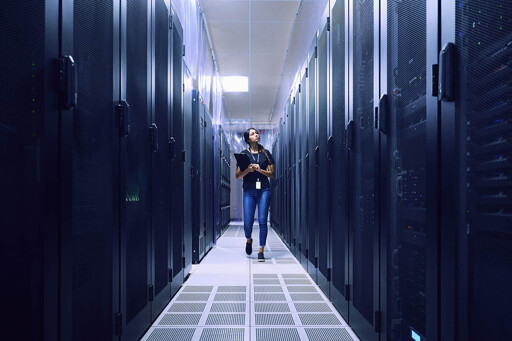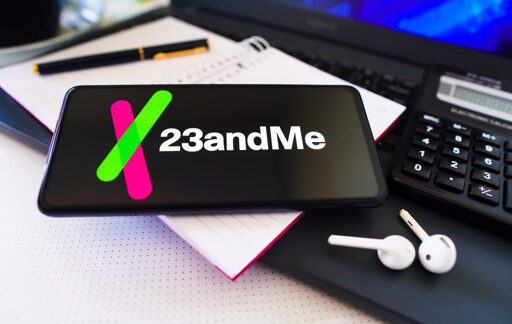Half of companies planning to replace customer service with AI are reversing course
-
This post did not contain any content.
The good thing: half of them have come to their senses.
The bad thing: half of them haven't.
-
This post did not contain any content.
I called the local HVAC company and they had an AI rep. The thing literally couldn't even schedule an appointment and I couldn't get it to transfer me to a human. I called someone else. They never even called me back so they probably don't even know they lost my business.
-
Someone already tried.
A television commercial for the loyalty program displayed the commercial's protagonist flying to school in a McDonnell Douglas AV-8B Harrier II vertical take off jet aircraft, valued at $37.4 million at the time, which could be redeemed for 7,000,000 Pepsi Points. The plaintiff, John Leonard, discovered these could be directly purchased from Pepsi at 10¢ per point. Leonard delivered a check for $700,008.50 to PepsiCo, attempting to purchase the jet.
And one funny addendum to that story is that someone COULD reasonably think that Pepsi had an actual Harrier to give away. After all, Pepsi once owned an actual navy.
In 1989, amidst declining vodka sales, PepsiCo bartered for 2 new Soviet oil tankers, 17 decommissioned submarines (for $150,000 each), a frigate, a cruiser and a destroyer, which they could in turn sell for non-Soviet currency. The oil tankers were leased out through a Norwegian company, while the other ships were immediately sold for scrap.
The Harrier commercial aired in 1996. The Harrier jet was introduced in 1978. It wasn’t too unreasonable to think that an 18 year old jet aircraft would be decommissioned and sold, especially after Soviet tensions eased. And if ‘they’ let Pepsi own actual submarines and a destroyer, doesn’t that seem more far fetched than owning a single old jet aircraft?
Guy should’ve gotten his Harrier.
-
Why does your customer service need to be on a popular platform? There's no network effect.
I've never used Twitter and do not plan to. That doesn't mean that everyone else has to stop using it because I don't approve of it.
-
I've never used Twitter and do not plan to. That doesn't mean that everyone else has to stop using it because I don't approve of it.
Well yeah, the reason you don't approve of it matters. If you never approved of it because you never liked the UX, then that's not a good reason for everyone to stop using it.
When we minimize other reasons to "words you don't like", we imply an unimportant personal preference, and not a social choice with consequences for others.
-
AI + worker effort is the sweet spot for efficiency and accuracy
...and it's only expensive and ruins the environment even faster than our wildest nightmares
what you say is true but it's not a viable business model, which is why AI has been overhyped so much
-
The transition to an AI-focused business world is proving to be far more challenging than initially anticipated.
No shit, Sherlock.
This isn't a surprise to anyone except fucking idiots who can't tell the difference between actual technology and bullshit peddlers.
-
Well yeah, when ai started to give people info so wrong it cost the companies money this was going to happen.
Fun fact: AI doesn't know what is or isn't true. They only know what is most likely to seem true. You can't make it stop lying. You just can't, because it fundamentally doesn't understand the difference between a lie and truth.
Now picture the people saying "We can replace our trainable, knowledgeable people with this". lol ok.
-
Hilariously, many of these companies already fired staff because their execs and upper management drank the Flavor-Aid. Now they need to spend even more rehiring in local markets where word has got round.
I’m so sad for them. Look, I’m crying

I have been part of a mass tech leadership exodus at a company where the CEO wants everything to be AI. They have lost 5 out of 8 of their director/VP/Exec leaders in the last 3 months, not to mention all the actual talent abandoning ship.
The CEO really believes that all of his pesky employees who he hates will be full replaced by cheap AI agents this year. He's going to be lucky to continue to keep processing orders in a few months the way it's going. He should be panicked, but I think instead he's doing a lot of coke.
-
This isn't a surprise to anyone except fucking idiots who can't tell the difference between actual technology and bullshit peddlers.
Which honestly seems to be an overwhelming majority of people.
Tech companies took a pretty good predictive text mechanism and called it "intelligent" when it obviously isn't. People believed the hype, so greedy capitalists went all in on a cheaper alternative to their human workers. They deserve to lose business over their stupid mistakes.
-
Fun fact: AI doesn't know what is or isn't true. They only know what is most likely to seem true. You can't make it stop lying. You just can't, because it fundamentally doesn't understand the difference between a lie and truth.
Now picture the people saying "We can replace our trainable, knowledgeable people with this". lol ok.
-
This isn't a surprise to anyone except fucking idiots who can't tell the difference between actual technology and bullshit peddlers.
But we need to fail faster, and be agile into the cloud!
-
It's a solvable problem with larger context buffers, but the resource requirements grow exponentially.
Seems like it's cheaper and more efficient just to pay people to fuck on camera.
-
This post did not contain any content.
Thank fucking christ. Now hopefully the AI bubble will burst along with it and I don't have to listen to techbros drone on about how it's going to replace everything which is definitely something you do not want to happen in a world where we sell our ability to work in exchange for money, goods and services.
-
The good thing: half of them have come to their senses.
The bad thing: half of them haven't.
Hopefully that half will go out of business.
-
Can we get our customer service off of "X former know as Twitter" too while we're at it?
And discord. For fucks sake I hate when a project has replaced a forum with discord. They are not the same thing.
-
This post did not contain any content.
So providing NO assistance to customers turned out to be a bad idea?
THE MOST UNPREDICTABLE OUTCOME IN THE HISTORY OF CUSTOMER SERVICE!
-
This post did not contain any content.
Lol absence of feces?
-
This post did not contain any content.
I used to work for a shitty company that offered such customer support "solutions", ie voice bots. I would use around 80% of my time to write guard instructions to the LLM prompts because of how easy you could manipulate those. In retrospect it's funny how our prompts looked something like:
- please do not suggest things you were not prompted to
- please my sweet child do not fake tool calls and actually do nothing in the background
- please for the sake of god do not make up our company's history
etc.
It worked fine on a very surface level but ultimately LLMs for customer support are nothing but a shit show.I left the company for many reasons and now it turns out they are now hiring human customer support workers in Bulgaria.
-
Well yeah, the reason you don't approve of it matters. If you never approved of it because you never liked the UX, then that's not a good reason for everyone to stop using it.
When we minimize other reasons to "words you don't like", we imply an unimportant personal preference, and not a social choice with consequences for others.
You don't have to use the platform.
-
-
-
-
The Current System of Online Advertising has Been Ruled Illegal by The Belgian Court of Appeal. Advertising itself is Still Allowed, but not in a Way That Secretly Tracks Everyone’s Behavior.
Technology 1
1
-
-
-
Trump Media & Technology Group, the company owned by the President, said Tuesday that it would raise $2.5 billion to invest in Bitcoin
Technology 1
1
-






